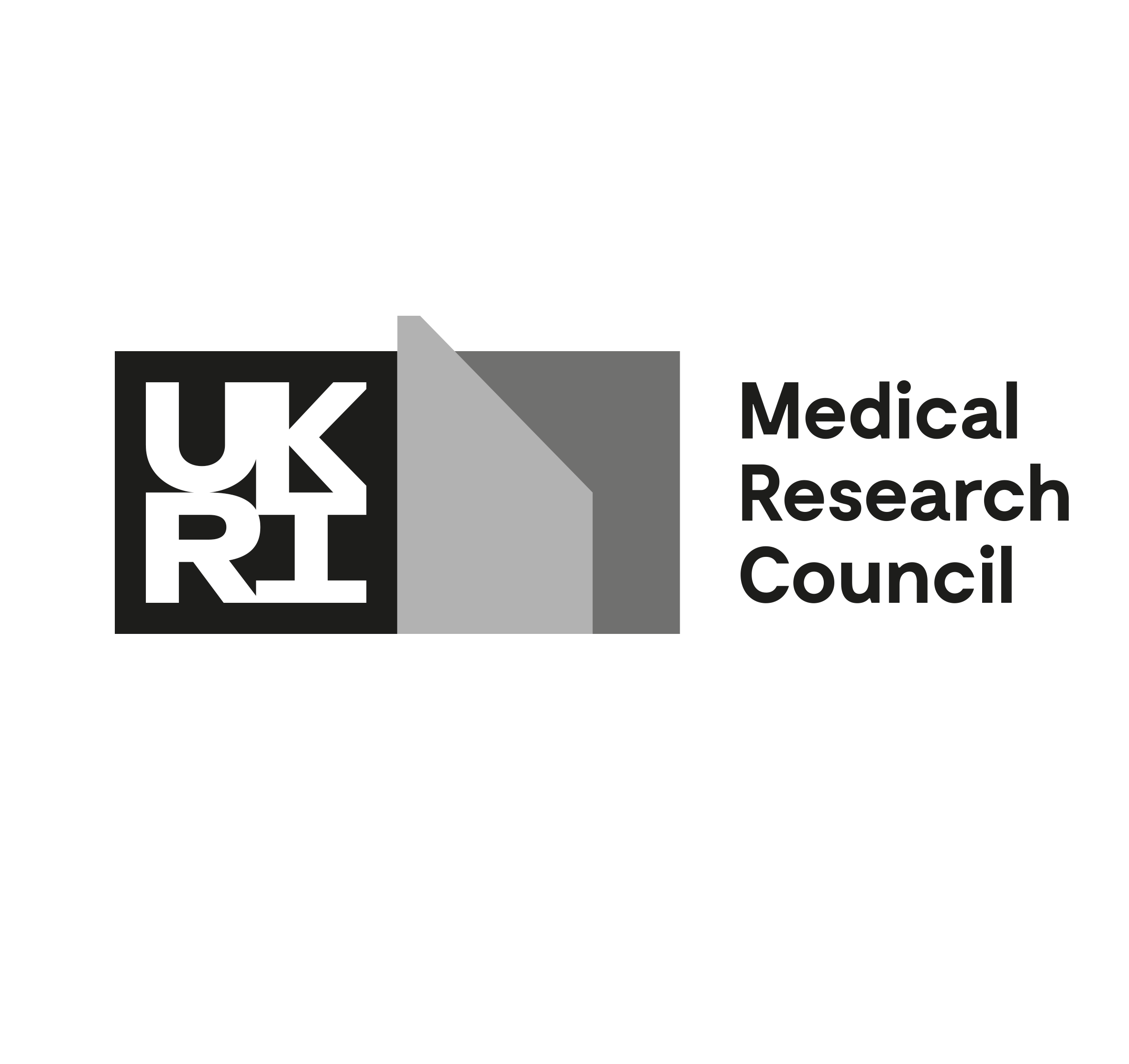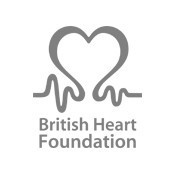Our Starter Grants provide up to £40,000 of research funding over 1-2 years, to help Clinical Lecturers strengthen bids for longer-term fellowships and funding.
Key dates
Round 35 is now closed.
Our Starter Grants provide up to £40,000 of research funding over 1-2 years, to help Clinical Lecturers strengthen bids for longer-term fellowships and funding.
Key dates
Round 35 is now closed.
The above diagram illustrates the application process for the two rounds of the Starter Grants award and provides rough dates for each stage. Please note that these dates are to serve as a guide only and can be subject to change.
About the scheme
This scheme was launched in October 2008 as a partnership between the Academy and the Wellcome Trust. Current funders of the scheme are the Wellcome Trust, British Heart Foundation (since 2011), Arthritis UK (since 2012), Medical Research Council (since 2013), Diabetes UK (since 2016), Prostate Cancer UK (since 2023), Vivensa Foundation (since 2024) and Kidney Research UK (since 2024). In 2025, the Academy commissioned the Starter Grants for Clinical Lecturers evaluation to assess the impact of the scheme’s objectives and activities over the last 5 years. The findings of this evaluation highlighted the crucial role this grant plays in supporting researchers to establish their independent careers and leverage further funding.
The grants provide modest ‘starter’ funds to enable research active Clinical Lecturers to pursue their research work. Clinical Lecturer posts provide a salary but often do not come with the funding to support the costs of the research. This scheme was designed to help bridge this gap by providing Clinical Lecturers with access to modest research funds for up to two years. It gives them experience of preparing a research grant application and helps them establish their research portfolios by providing funding for research consumables.
So far we have supported 766 Clinical Lecturers through 33 rounds of funding, with grants totalling over £21.7 million. The 10th anniversary report (2018) and the scheme evaluation (2016-2023) can be accessed in the 'Downloads' section.
In November 2020, the academy launched an exciting new programme called PILLAR (Promoting Innovation, Learning, Leadership And Resilience in the research community). This programme offers support to our grant awardees. For more information please visit the main PILLAR page.
Recent Awardees
Emily Goodchild, Queen Mary University of London, Neuronal influences on the aetiology of primary aldosteronism
Maria Krutikov, University of Sussex, Using WAstewater for detection of guT pathogens in Care Homes (WATCH)
Claire MacIver, Cardiff University, Pathogenesis of focal upper limb dystonia- how localised neuronal changes inform motor network remodelling
Arunashis Sau, Imperial College London, Heart failure screening and risk prediction using a multimodal artificial intelligence foundation model
Clare MacRae, University of Edinburgh, Living in families with multi-person long-term conditions: understanding the impact on healthcare use in children
James Loan, University of Edinburgh, Research Proposal: STudy of modifiable Inflammatory determinants of Resilience after IntraCerebral Haemorrhage (STIR-ICH)
Rachael Jablonski, University of Leeds, Preclinical laboratory study to explore the trueness and precision of digital dental articulation in an in-vitro setting
Samuel Lockhart, Queen's University Belfast, Understanding the mechanistic basis of phenotypic heterogeneity in HTRA1-related vascular disease
Ashley Vardon, University of Birmingham, CAR BH3 DMG: Combining GD2 CAR T Cells With BH3 Mimetic In Diffuse Midline Glioma
Ioannis Akoumianakis, University of Oxford, INVESTIGATING THE DIRECT CARDIOVASCULAR ROLES OF NEUROPEPTIDE Y IN HUMANS WITH ATHEROSCLEROSIS
Rachel Harwood, University of Liverpool, Decoding neural characteristics: Comprehensive comparison of human and embryonic stem cell-derived neurosphere like bodies for clinical translation
Thomas Payne, University of Sheffield, Multimodal PET/MRI and 31-Phosphorus magnetic resonance spectroscopy to mechanistically stratify sporadic Parkinson's disease
Callum Wright, Newcastle University, Distinct clonal alloimmune T cell responses drive the human Graft Versus Leukaemia effect and Graft Versus Host Disease
Alexandra Creavin, University of Bristol, Understanding Health Information Needs of Vulnerable Migrant Communities to Improve Healthcare Access and Information Equity
Eliza Gil, University College London, Role of capsular genotype in the increasing incidence of Streptococcus intermedius brain infection
Donato Iacovazzo, Queen Mary University of London, Understanding how an SLC30A9 gene deletion causes familial medullary thyroid carcinoma
James Pittaway, Barts and the London School of Medicine and Dentistry, Investigating the mechanism of action of adrenotumab, a DLK1 monoclonal antibody, for the targeted treatment of adrenocortical carcinoma
Emma Parry, Keele University, Exploring and characterising usage of social determinants of health codes in General Practices in England using CPRD
Thomas Jovic, Swansea University, 3D bioprinted skin for burns and reconstructive surgery
Liying Low, University of Birmingham, Development of a combined DNA/RNA nanopore sequencing method for rapid detection of pathogens in severe eye infections
Shruti Joshi, University of Edinburgh, Myocardial Fibroblast Activation and Thrombosis in Takotsubo Syndrome
Patrik Bachtiger, Imperial College London, REVISOR: Retrospective Validation of Impactability Modelling for Prospectively Maximising Impact of Cardiovascular Disease Prevention Programmes
Sarah Briggs, University of Oxford, Developing environmentally sustainable cancer care from patients’ perspectives: a qualitative research study based on melanoma care
George Joy, St George's University of London, Predictors of disease progression in hypertrophic cardiomyopathy
Jonathan Sturgeon, Imperial College London, Examining the role of inflammation and infections on infant birthweight and outcomes in Zimbabwe
Ramesh Nadarajah, University of Leeds, Future Innovations in Novel Detection of Heart Failure: A proof-of-concept study of a machine learning algorithm to increase early detection of heart failure in the community
James Glasbey, University of Birmingham, Learning to co-develop a adaptive platform trial to improve surgical outcomes in Low- and Middle-Income Countries
Nic Robertson, University of Edinburgh, The minor spliceosome in health and disease
Grace McMacken, Queen's University Belfast, Clinical and Genomic Characterization of Distal Myopathies in Northern Ireland
Judith Harrison, Northumbria NHS Healthcare Foundation Trust, LUMEN: A Feasibility Study of AI-Assisted Dementia Assessment Using Large Language Models, with a Nested Qualitative Evaluation
Mohamed Abdelhalim, King's College London, The effects of implanting aortic stent grafts on aortic stiffness and cardiac function
Ali Amini, University of Oxford, Role of Bicarbonate Transport in T cell Function
Irina Bacila, University of Sheffield, Understanding the interactions between steroid hormones and gut microbiota in the regulation of metabolic processes
Alice Beardmore-Gray, King's College London, Early monitoring of postnatal women to reduce risk of chronic kidney disease (EMPOWERED) study
Chris Bretherton, Queen Mary University of London, The Open Trauma Assessment Study (OTAS): Complex Regional Pain Syndrome (CRPS) Substudy
Claire Broderick, Imperial College London, Old age and host response to infectious diseases: biomarkers and biology
Rosalin Cooper, University of Oxford, Identifying microenvironmental predictors of leukaemic transformation in myeloproliferative neoplasia
William Dalleywater, University of Nottingham, Investigating high GREM1 and high PDGFRA expressing stromal cells in the colorectal cancer microenvironment
Niki Flaum, University of Manchester, BREAST CANCER EARLY DETECTION - BREAST MILK (BRACELET-BM1): A FEASIBILITY STUDY
Negin Holland, University of Cambridge, Characterising survival heterogeneity in frontotemporal lobar degenerative syndromes.
Meher Lad, Newcastle University, Are auditory cognitive measures related to blood-based biomarkers of Alzheimer's disease dementia?
Michael Mather, Newcastle University, Mechanistic modelling of upper airway immune dysfunction in children with otitis media with effusion
Edouard Mills, Imperial College London, Investigating the Effects of Kisspeptin Administration on Bone Metabolism in Postmenopausal Women
Stephen Ray, University of Oxford, Metagenomic and Phage sequencing for infectious and autoimmune diagnosis of febrile coma in Malawian children
Sabrina Rossi, University of Cambridge, Exploring DNA methylation epipolymorphism using Oxford nanopore long-read sequencing to gain insights into the tumorigenesis of clear cell renal cell carcinoma
Clark Russell, University of Edinburgh, Identification and prioritisation of macrophage responses required for clearance of intracellular Staphylococcus aureus.
Omid Sadeghi-Alavijeh, University College London, Whole Genome Sequencing to uncover the mutational landscape of cystic kidney diseases
Iannish Sadien, University of Cambridge, The role of oncogene-induced senescence in intestinal tumorigenesis
Benjamin Stewart, University of Cambridge, Defining the dynamic cell states of glomerular inflammatory responses
Jake Thompson, University of Nottingham, Exploring the physiological basis of positive welfare: Does a dairy cow’s housed environment lead to changes in metabolomic signals, production, and behaviour?
Hew Torrance, Imperial College London, Phenotyping and functional analysis of perioperative neutrophils in patients undergoing major abdominal cancer surgery.
Tim van Hasselt, University of Leicester, MAPS - The Multiple Long-term Conditions And Prematurity Study
Samer Alabed , University of Sheffield , Heart Talk: Turning Cardiac Measurements into Clinical Reports with Large Language Models
Ahran Arnold, Imperial College London, Non-invasive electro-anatomical mapping of repolarisation patterns after continuous conduction system pacing as cardiac resynchronisation therapy
Mathew Baldwin, University of Oxford, Machine learning approaches for biomarker discovery to diagnose prosthetic joint infections
Pamela Bowman, University of Exeter, Optimising targeted sulphonylurea treatment for the brain in neonatal diabetes (SU-BIND)
Joanne Butterworth, University of Exeter, Ensuring equality, diversity and inclusivity in the coproduction and planning for the evaluation of ‘VOLITION’: A complex intervention to involve older people living with multiple long-term conditions in shared decision-making about their health care during general practice consultations.
Stephen Chapman, University of Leeds, Preparatory framework for a platform trial to prevent ileus after surgery
Edward Chesney, King's College London, Can CBD be used to moderate tolerance to cannabis in very heavy users? A pilot study
Kristina Clark, University of Oxford, Understanding fibrosis in systemic sclerosis gastrointestinal disease
Rachel Clifton, University of Nottingham, Understanding the role of the skin microbiota in ovine footrot: a non-invasive metatranscriptomics approach
Natalie Cox, University of Southampton, A feasibility study to explore the relationships between modifiable influences and anorexia of ageing.
Hannah Crane, University of Sheffield, Spatial profiling of the transcriptomic landscape and investigating the role of epigenetic regulation in Oropharyngeal Squamous Cell Carcinoma (OPSCC)
Xinyi (Beibei) Du-Harpur, King's College London, Molecular characterisation of vascular endothelial tissues throughout the development and presentation of hidradenitis suppurativa
Krit Dwivedi, University of Sheffield, Deep learning automated multi-system comorbidity assessment on chest Computed Tomography in Pulmonary Hypertension for prediction of patient survival and treatment response.
Peter Gallacher, University of Edinburgh, Trends in the incidence, treatment, and outcomes of heart failure in patients with kidney failure: a nationwide data-linkage study.
Sumeet Hindocha, University College London, Temporal, Multi-modal Deep Learning for Radiotherapy Toxicity and Outcome Prediction in Non-Small Cell Lung Cancer (LUCIDITY)
David Lawrence, London School of Hygiene and Tropical Medicine, Reflex CD4 testing to determine the prevalence of advanced HIV disease among people with a detectable HIV viral load in Botswana
Emma Grace Lewis, Newcastle University, SYNErgise: Characterising the SYndemic of ageing, multiple long-term conditions and social care needs in the North East of England
Robert Morgan, University of Manchester, Defining the tumour microenvironment of high-grade serous ovarian cancer with different pathological responses to platinum-based neoadjuvant chemotherapy.
Holly Roy, University of Plymouth, nvestigating TEAD inhibition in hippo pathway dependent central nervous system tumours
Hannah Schiff, University of Southampton, Integrating plasma proteomics with clinical phenotype to define diagnostic biomarkers of pulmonary tuberculosis
Ina Schim van der Loeff, Newcastle University, Understanding how autosomal dominant mutations in PSMB10 cause severe combined immunodeficiency and Omenn syndrome
Karen Suetterlin, Newcastle University, A pilot project to assess the acceptability, feasibility and utility of Force Enhancement as a non-invasive measure of titin function in neuromuscular disease.
William Young, Queen Mary University of London, Integration of large-scale proteomics with ECG traits for anti-arrhythmic drug target discovery
Nabih Alkhouri, University College London, Renewal MI second generation- from restorative to pulp regeneration material
Asmaa Al-Taie, University of Leeds, Wear characteristics of modern dental ceramic materials and their opposing dentition
Kavit Amin, University of Manchester, Developing a Porcine Ex-Vivo Living Limb System to Investigate the Bidirectional Control of Advanced Prostheses
Alex Aquilina, Bristol Medical School, Core Outcomes for Periprosthetic Femoral Fractures
Benjamin Faber, University of Bristol, Identifying potential drug targets for Osteoarthritis using data from the Genetics of Osteoarthritis Endophenotype Working Group.
Sophie Gu, University of Cambridge, Development of a biomechanical simulation platform for the prediction of coronary plaque destabilisation
Charlotte Hellmich, University of East Anglia, Investigating the role of differentially expressed glutamine synthetase in aged haematopoietic stem cells.
Thomas Jackson, University College London, Developing syngeneic models of CAR-T therapy for neuroblastoma
Christopher Jones, University of Cambridge, The impact of clonal cooperation on tumour resistance to ionising radiation
Roxanne Keynejad, King's College London, Collaborative development of a hybrid type 2 effectiveness-implementation randomised controlled trial protocol in rural Ethiopia
Elizabeth Li, University of Birmingham, Stopping unnecessary surgery: A behavioural change intervention to tackle the misdiagnosis of appendicitis and improve patient outcomes
Gashirai Mbizvo, University of Liverpool, An international cohort study assessing the morbidity and mortality risks of valproate withdrawal in men and women aged 16–54 years with epilepsy
Sarah Mills, University of St Andrews, Use of Point-of-Care C-Reactive Protein Testing in the General Practice Out-of-Hours Service in Scotland: A Pilot Study.
Matthew Nour, University of Oxford, Decoding natural language in psychiatry: from cognitive maps to scalable biomarkers
Olakunle Oginni, Cardiff University, Disentangling the mechanisms of early childhood psychopathology in a resource-poor setting using a genetically informative design: a pilot twin study in southwestern Nigeria
Toby Pillinger, King's College London, Cardiac structure and function in people with first episode psychosis
Nuria Sanchez Clemente, St. George's, University of London, Using electronic health records to describe the health of migrant children and young people who require an interpreter in England.
Ashwin Venkataraman, King's College London, Quantification of the utility and feasibility of portable ultra-low-field MRI to investigate dementia in older adults under memory services.
Nicola Vousden, University of Oxford, Leveraging linked data and lived experience to design interventional studies aiming to improve maternal and infant outcomes for pregnant women living with disadvantage
Rachel Wake, St George's University of London, Investigating Combination Antifungal Therapy with Flucytosine for the Prevention of Antifungal Resistance during Treatment of Invasive Candidiasis
Janine Yazdi-Doughty, University of Liverpool, A study to explore how adults experience oral health-related stigma and their perspectives about how to destigmatise differences in oral health status.
Angeliki Zarkali, University College London, Quantifying the contribution of cerebral amyloid angiopathy to Lewy body dementias
Caroline McCarthy, University of Liverpool, Multi-spectral phenotyping of the immune microenvironment in Oral Lichen Planus
Kushalav Abeysekera, University of Bristol, Investigating the rise of liver disease in young adults in the UK
Ryckie Wade, University of Leeds, Quantitative MRI of Skeletal Muscle For Assessing the Site and Severity of Ulnar Nerve Entrapment: A Pilot Study
Peter Hanlon, University of Glasgow, Enhancing routine healthcare data to compare frailty and multimorbidity in randomised controlled trials versus routine care
Joseph Ward, University College London, Using administrative data to estimate burden of chronic disease in children and young people in England
William Watson, University of Cambridge, Does increased lipid metabolism alter cardiac function in ischaemic cardiomyopathy?
Joshua Luis, University College London, Müller glial cell response during acute intraocular pressure elevation
Xilin Wu, Queen Mary University of London, Investigating the role of TMEM132E in the production of aldosterone, and whether it is required for membrane trafficking of nicotinic acetylcholine receptors in the adrenal.
Karyn Ayre, University of Edinburgh, An Implementation Science Approach to Complex Social Circumstances Among Antenatal Women with Moderate-Severe Mental Illness.
Donal Skelly, University of Oxford, Investigating the Immune Landscape of the Meninges in Alzheimer’s Disease: A Spatial Transcriptomics Pilot Study
Ana-Catarina Pinho-Gomes, University College London, Association between exposure to air pollution in utero and childhood health outcomes
Mark Ellul, University of Liverpool, Understanding disease mechanisms of postinfectious autoimmunity in herpes simplex virus encephalitis
Andreas Hadjinicolaou, University of Cambridge, Investigating the utility of the Cytosponge and molecular biomarkers to identify patients at risk of gastric cancer
Neil Graham, Imperial College London, The UK CTE Study - understanding the long-term outcomes of head impact exposure
Candice Downey, University of Leeds School of Medicine, A feasibility evaluation investigating the impact of emergency laparotomy and its complications on healthcare costs and patients’ quality of life
Sarah Prentice, London School of Hygiene and Tropical Medicine, Identifying transcriptomic signatures of BCG-induced protection against heterologous infections in infants
Lettie Rawlins, University of Exeter Medical School. A community approach to accelerate the discovery of the molecular basis of neurodevelopmental disorders in Pakistan
Lucy Plumb, University of Bristol, Refining and validating a clinical prediction score for childhood chronic kidney disease
Jennifer Lane, Queen Mary University of London, Improving surgical and device epidemiology in real world big data: leading an international collaboration
Jesmeen Maimaris, University College London, Genetic and immunological characterisation of novel JAK/STAT signalling pathway defects in primary immunodeficiency diseases
Zahra Raisi-Estabragh, Queen Mary University of London, The ONCOVER Study: Optimising cardiovascular risk stratification in people with cancer
Mohamed Mohamed, University College London, Risk assessment and long-term outcomes of acute coronary syndrome management strategy in cardio-oncology patients
Charikleia Papadopoulou, University of Cambridge, Understanding the molecular mechanisms behind ischaemic cardiomyopathy
Tom Abbott, Queen Mary University of London, A national perioperative platform trial to promote diversity in perioperative research
Supporters
The scheme is generously supported by:









Tel: -
View staff bioTel: 020 3141 3210
View staff bioTel: –
View staff bio